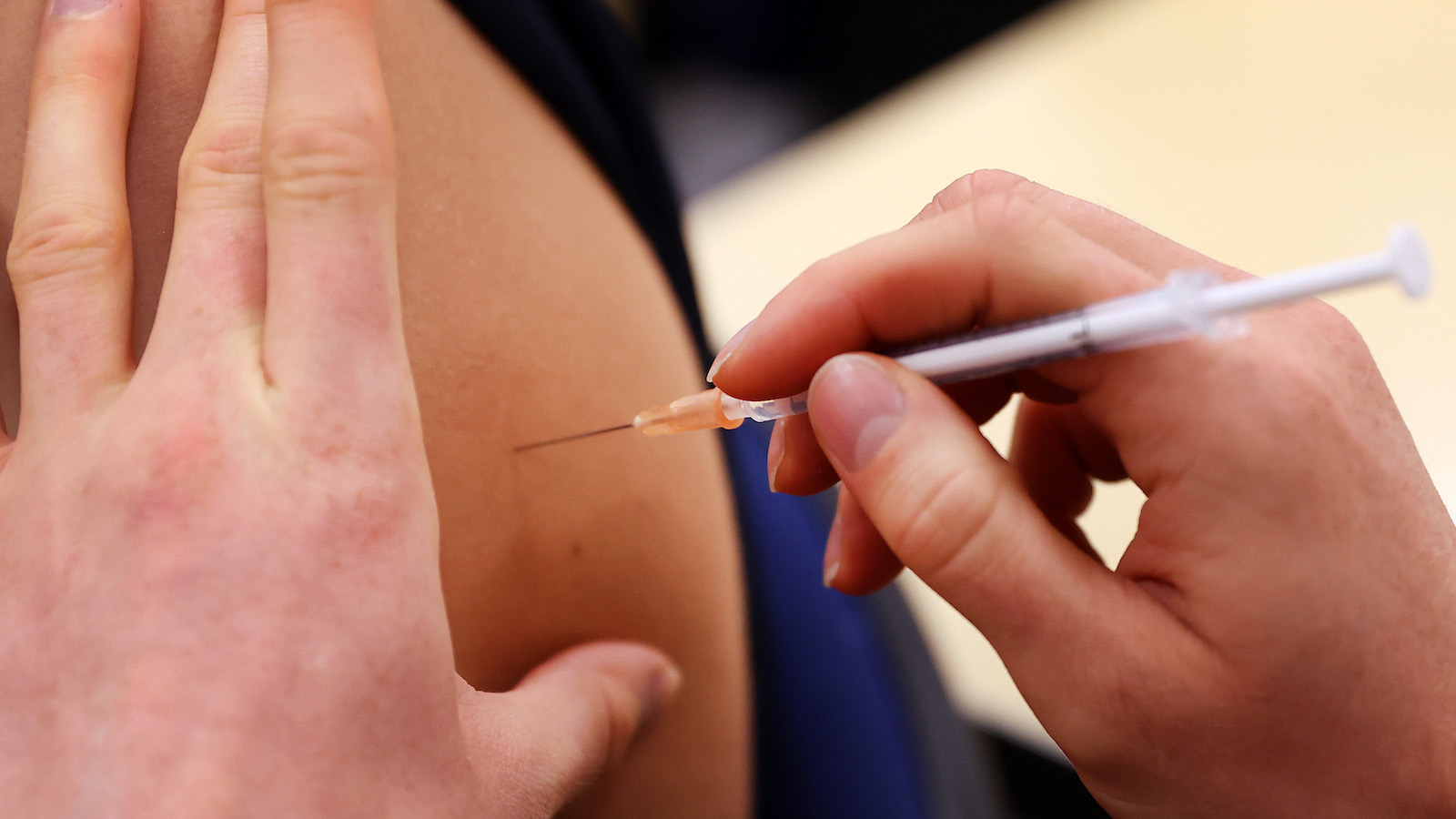Did you get vaccinated?
Know what you can get for free 1:01
(CNN Spanish) -
In the United States, a large part of its population already has access to the vaccine against covid-19.
However, not many of them are opting for the antigen and as a consequence, the rate of vaccination has slowed down.
In this episode, Dr. Huerta explains to us the consequences that this can have in the long term.
You can listen to this episode on Spotify or your favorite podcast platform or read the transcript below.
Hello, I am Dr. Elmer Huerta and this is your daily dose of information about the new coronavirus.
Information that we hope will be useful to take care of your health and that of your family.
Today we will see what are some of the reasons why the initially successful vaccination program in the United States has entered a period of slowing down, and if that, it threatens that the long-awaited immunity of the group or herd will not be achieved.
advertising
How is vaccination going in the United States?
At the time of this writing, more than half of the American population has received at least one dose of one of the three vaccines approved against COVID-19 in the country.
But what is observed is that the enormous enthusiasm of the population, which was reflected in record numbers of vaccinated, has yielded to much more modest numbers and the population is more reluctant to be vaccinated.
What could be happening to explain the marked decrease in the number of vaccinated in the United States?
Recall what we heard in the January 19 episode when we described the theory of adoption of innovations from psychologist Everett Rogers.
We said in that episode that, in the face of an innovation -such as a vaccine- human beings adopt new things that are offered to us in different ways.
Between innovators and adopters
In this sense, 2.5% of people are called innovators, that is, they are the first people to adopt an innovation, in this case, they are the first to get vaccines.
They are those people who - before the pandemic and a new cell phone model was put on sale - slept at the door of the store to be the first to buy it.
This is followed by 13.5% of the population, who are early adopters, that is, those who will not be vaccinated on the first or second day, but will do so in the first days or weeks.
This is followed by 34% of the population, called the early majority, which are those people who will wait a few weeks or months to get vaccinated.
Those are followed by another 34% of the population, called the late majority, who will take many months to get vaccinated, followed by the so-called laggards, who are 16% of the population, who will never be vaccinated.
Who has been vaccinated the most among these groups?
Apparently, and according to the distribution of the population in the curve of adoption of innovations, in the United States they have already been vaccinated:
The innovators,
Early adopters
And the early majority, which coincidentally adds up to 50% of the population.
Now there remains the enormous challenge of convincing people included in the late majority to be vaccinated, and thereby achieving the 85% of vaccinated people that are needed to achieve the immunity of society.
For that, it will be necessary to face some of the causes why the population refuses to be vaccinated, a negative that is causing the closure of vaccination points that were full at the beginning and are now empty.
Misinformation, a key factor?
One of them is to combat misinformation campaigns on social networks, campaigns that were fueled by anti-vaccine groups, which took advantage of the lack of adequate information on the relationship between clot formation and the administration of the Johnson & Johnson vaccine, for example .
But the problem is not only one of misinformation of the population, but it is complicated by the religious and political dyes that influence people's decisions.
In this regard, about 29% of Republicans said they definitely would not get a vaccine, and 28% of white evangelical Christians said they definitely would not.
In addition to the enormous task of convincing millions of people to get vaccinated, factors such as uncertainty about the duration of immunity obtained by vaccination and the presence of variants of the virus, originating in countries that, paradoxically, still do not have vaccines available to their populations, they make group or society immunity elusive.
If that immunity is not achieved from society, it is possible that covid-19 will not disappear and become a disease that continues to cause outbreaks for a long time, especially in the months of cold temperatures.
Do you have questions about the coronavirus?
Send me your questions on Twitter, we will try to answer them in our next episodes.
You can find me at @DrHuerta.
If you think this podcast is useful, help others find it by rating it on your favorite podcast app.
We'll be back tomorrow so be sure to subscribe to get the latest episode on your account.
And for the most up-to-date information you can always head to CNNEspanol.com.
Thanks for your attention.
If you have any questions you can send them to Dr. Elmer Huerta through Twitter. You can also head over to CNNE.com/coronaviruspodcast for all episodes of our “Coronavirus: Reality vs. Reality” podcast. fiction".
coronavirus Covid-19 vaccine against covid-19












/cloudfront-eu-central-1.images.arcpublishing.com/prisa/KMEYMJKESBAZBE4MRBAM4TGHIQ.jpg)


